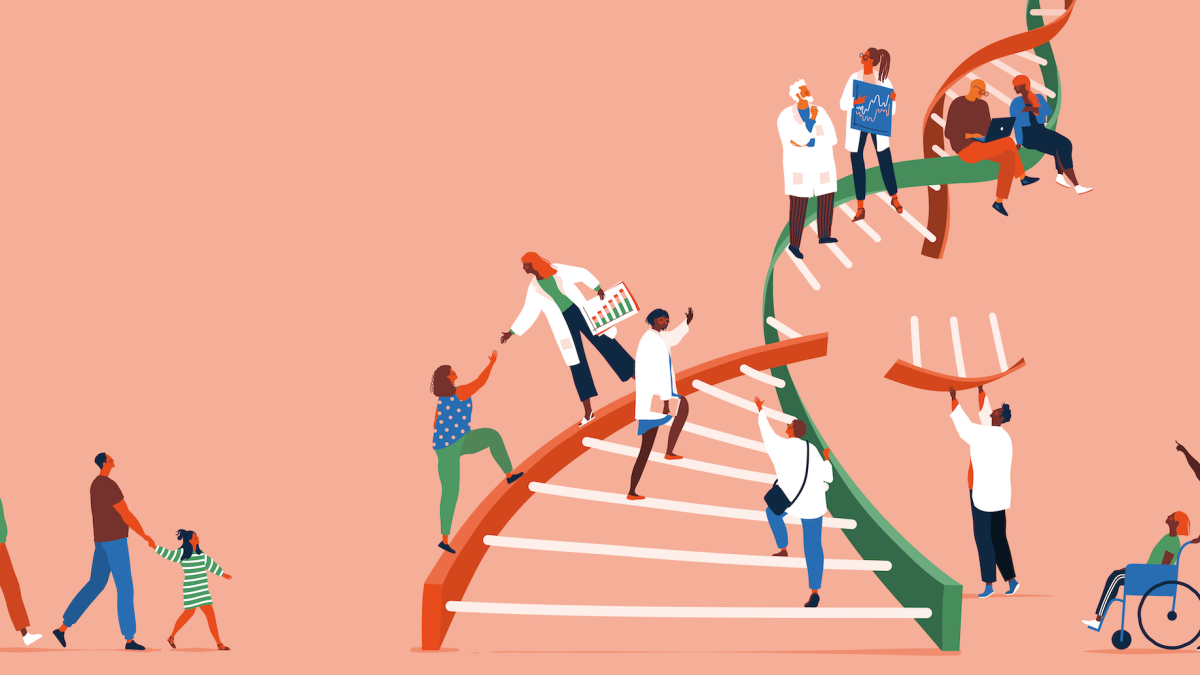Designer babies, mutant mosquitoes and frankenfoods: These are the images that often spring to mind when people think of genome editing.
The practice, which alters an organism’s DNA in ways that could be inherited by subsequent generations, has implications so profound that a growing group of experts believe it is too important a matter to be left only to scientists, doctors and politicians.
In the journal Science, 25 leading researchers from across the globe, including Consortium for Science, Policy, and Outcomes Associate Director Mahmud Farooque at Arizona State University, are calling for the creation of national and global “citizens’ assemblies,” made up of laypeople, tasked with considering the societal implications of this emerging science. The potentials for genome editing are immense. On the one hand, it could prevent or cure genetic conditions such as sickle cell anemia, cystic fibrosis and even some forms of cancer. On the other, it could create new, treatment-resistant illnesses or cause inequalities with designer babies engineered for superstrength or intelligence.
Researchers — including Professor John Dryzek, head of Australia’s Centre for Deliberative Democracy and Global Governance at the University of Canberra — believe these implications are so important that they should be examined not just by those in the field, but by the general public.
“The promise, perils and pitfalls of this emerging technology are so profound that the implications of how and why it is practised should not be left to experts,” Dryzek said.
The sentiments connect well with decades-long CSPO scholarship and practice with respect to the governance of emerging technologies. Amidst the vacuum left by the demise of the U.S. Congressional Office of Technology Assessment in 2010, CSPO joined the Museum of Science, SciStarter, the Loka Institute and the Science, Technology and Innovation Program at the Woodrow Wilson International Center for Scholars to launch the Expert and Citizen Assessment of Science and Technology (ECAST) network to bring citizen voices into science and technology decision-making.
After a demonstration project providing citizen input to the United Nations Convention on Biological Diversity in collaboration with the Danish Board of Technology, ECAST piloted its first participatory technology assessment (pTA) project with NASA on its Asteroid Initiative. ECAST’s portfolio now includes projects on nuclear waste siting, community resilience, climate intervention research, automated vehicle futures and gene editing.
To assist global citizen deliberations on gene editing, CSPO is working on a series of three closely connected projects. In partnership with the Kettering Foundation, CSPO is developing an issue guide by conducting focus group deliberations at the local community level. These open-framed focus groups will allow participants to share their hopes and concerns and direct the conversation on their terms. The resulting issue guide will be used for community-based, deliberative conversations about human genome editing.
The issue guide will also help inform the design of a series of large-scale, national public deliberations on human genome editing, which CSPO will co-design with the Museum of Science. These deliberations are funded through a three-year grant from the National Institutes of Health awarded to Christopher T. Scott, the Dalton Tomlin Chair of Medical Ethics and Health Policy at the Center for Medical Ethics and Health Policy at Baylor College of Medicine, and Cynthia Selin, associate professor in the School for the Future of Innovation in Society and the School of Sustainability at Arizona State University. The aim is to develop forward-looking, democratically derived, and ethically reflective processes useful in preparing for possible futures related to human genome editing.
The U.S. deliberations will inform and lead into a Global Citizens Assembly on Genome Editing scheduled for early 2022. This assembly will bring together a minimum of 100 participants from different countries for multiday deliberations on the global governance of genome editing.
It will be the beginning of a “more inclusive, effective and integrated global citizen deliberation that will inform the broader public as much as experts and decision-makers,” said Farooque, leader of the U.S. public engagement efforts and clinical associate professor at the School for the Future of Innovation in Society within Arizona State University’s College of Global Futures.
“These forums will provide a unique opportunity for us to build an anticipatory and participatory multilayered governance framework for gene editing in particular and other socially disruptive innovations in general, early in the process when the ‘should we’ and ‘we should not' options are still on the table,” he added.
Written by Kimberly Quach, program coordinator, Consortium for Science, Policy, and Outcomes Arizona State University.
More Law, journalism and politics

LA journalists and officials gather to connect and salute fire coverage
Recognition of Los Angeles-area media coverage of the region’s January wildfires was the primary message as hundreds gathered at…

A new twist on fantasy sports brought on by ASU ties
A new fantasy sports gaming app is taking traditional fantasy sports and mixing them with a strategic, territory-based twist.…

'Politics Beyond the Aisle' series to explore the stories of public officials
In an effort to build a stronger connection between students and political and civic leaders, Arizona State University’s School…


